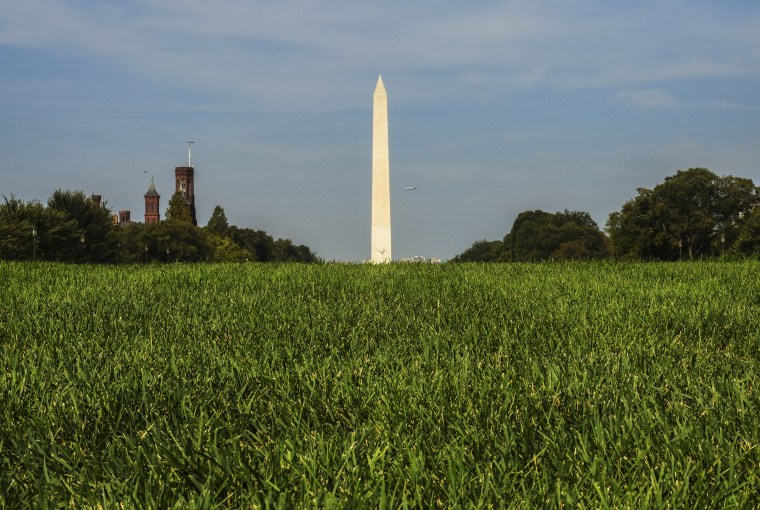The debate over statehood for Washington, D.C., is not exactly new. For many years, policymakers in both parties have weighed measures to address the fact that D.C. residents are the only taxpaying Americans in the continental United States with no representation in Congress.
The issue took on considerably greater importance during the insurrectionist attack on the Capitol on Jan. 6 because the federal government controls the D.C. National Guard. It meant local elected officials -- unlike every governor in the country -- were powerless as radicalized rioters launched an attack.
Yesterday, as NBC News reported, the issue received welcome congressional scrutiny.
Lawmakers on the House Oversight and Reform Committee debated the statehood campaign during a hearing that examined legislation dubbed "the Washington, D.C. Admission Act," which was introduced in late January in the House by Del. Eleanor Holmes Norton, a Democrat who represents D.C., and in the Senate by Democrat Tom Carper of Delaware.
By any fair measure, Republicans had plenty of time to come up with their best arguments ahead of the House hearing. They couldn't come right out and tell the truth -- they oppose D.C. statehood because it would likely mean two additional Democratic senators -- and so we were treated to a series of deeply strange talking points.
Rep. Glenn Grothman (R-Wis.), for example, noted that D.C. doesn't have any mining, which is true, but irrelevant.
Rep. Jody Hice (R-Ga.) insisted that D.C. would be the only state "without a car dealership." In addition to being irrelevant, this one isn't even true.
The Heritage Foundation's Zack Smith, a witness Republicans invited to testify, argued that congressional representation for these 700,000 American taxpayers is unnecessary because local residents "already impact the national debate" -- because members of Congress see their yard signs while driving to Capitol Hill. He did not appear to be kidding.
After the hearing, Sen. Mike Rounds (R-S.D.) thought it'd be a good idea to argue via Twitter, "The Founding Fathers never intended for Washington D.C. to be a state."
That's very likely true, but the Founding Fathers, among other things, also didn't intend for there to be two Dakotas -- 19th-century Republicans created two states out of the Dakota Territory in order to have extra U.S. senators -- so maybe Rounds should rethink his pitch.
Finally, there was Rep. James Comer (R-Ky.), who characterized the effort as "a key part of the radical leftist agenda to reshape America," likening D.C. statehood to the Green New Deal.
Whether the Kentucky Republican is aware of this or not, the truth is his party hasn't always felt this way. In 1956, for example, the Republican Party's official national platform was explicit in its support for "representation in the Congress of the United States for residents of the District of Columbia."
As the Washington Post noted, the GOP's support for the idea didn't end there.
Both conservative icon Barry Goldwater and former president Richard M. Nixon favored D.C. statehood. The 1972 and 1976 Republican Party platforms endorsed voting rights for Washington in the House and Senate. And both chambers of Congress in 1978 passed a proposed constitutional amendment (i.e. with two-thirds majorities) to that effect, with half of GOP senators voting for it. The amendment was not ratified by enough states.
With James Comer's rhetoric in mind, "radical" seems less applicable to the Washington, D.C. Admission Act, and more applicable to its opponents.
